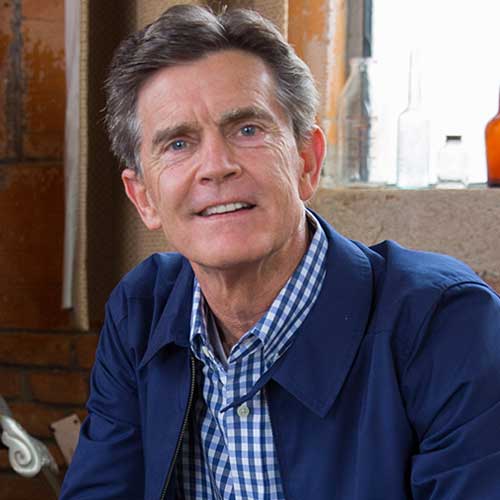I have a little grandson named Noah. We’re really close. One day his mom was mopping the floor, and he came running and slipped and broke his femur.
By the time I heard about it, Noah had been to the ER and now was with the pediatric orthopedic doctor. I just sat there with this little guy — he was only 19 months old — and he looked at me with terror in his eyes that said, “Papa! It hurts? Fix me!”
At that moment something happened deep down inside me. Overwhelming emotion welled up, and I so wanted to tell Noah, “It’s going to be okay! It’s going to heal, and you won’t remember this pain, dear Noah.”
More than that, I wanted to bear his pain and fear and confusion for him.
Here’s what I want you to know. What I felt inside when I saw Noah’s need is a taste of the compassion God feels about you when He sees your needs.
Maybe He sees the cancer you’re battling or your depression or loneliness or anger. Maybe He sees divorce in your past or strife in your marriage. Maybe He sees conflict at work, or a parent who is dying, or a kid that’s lost.
Your deepest hurts, needs, and mistakes are like a magnet that draw Jesus’s love and compassion to you. That’s what the Bible teaches God is like.
Sheep without a Shepherd
Now, I don’t know about you, but even after being a pastor for over thirty years, that’s not the picture I’ve had of God most of my life. Intellectually, yes. I get the picture, and I know it’s true. But I have this default mechanism that says something else. How do you see God?
On any given day, I might think I don’t measure up. I’m doing very well. God is probably disappointed in me. None of that is true, but I react that way.
So we have to be reminded. Why did Jesus come? Why did He die for us? How does God see us?
While on earth Jesus often taught using parables — a story that illustrated a point. Do you remember the one about the Good Shepherd?
In this day and age, you probably don’t know much about sheep. But in the 10th chapter of the gospel of John, the people Jesus was talking to were very familiar with these dependent, vulnerable and not-so-smart animals.
They knew that a sheep without a shepherd die. They’re vulnerable, they can’t find water on their own; they will eat grass down to the roots and kill themselves unless they’re moved. If they roll over — or “are cast,” from whence the word downcast comes — they can’t pick themselves up. That’ll kill them too.
Unless they’re saved by their shepherd.
A Shepherd Gives His Life for His Sheep
Don’t take this personally, God calls us sheep.
But it’s because He wants to be our Shepherd.
What is your greatest need in life? Your Shepherd wants to meet it. But keep in mind, it’s not having a fat portfolio or a prestigious title or a stunning spouse.
Your greatest need is to be deeply loved and accepted; to feel significant in who you already are, not what you do; to have a deep, overwhelming sense of security, that it is well with your soul and you can handle any circumstance; and have a very clear purpose in your life. That’s your deepest need.
Jesus promises this for His followers:
“I have come that they may have life, and have it to the full.” (John 10:10)
And because of His compassion and love, Jesus gives His life so that your needs can be met. He declares in this chapter five times that He lays down His life for His sheep:
“I am the good shepherd. The good shepherd lays down his life for the sheep…. (verse 11) “I am the good shepherd; I know my sheep and my sheep know me — just as the Father knows me and I know the Father—and I lay down my life for the sheep (verses 14-15). The reason my Father loves me is that I lay down my life—only to take it up again. No one takes it from me, but I lay it down of my own accord. I have authority to lay it down and authority to take it up again. This command I received from my Father” (verse 17-18).”
So here are two questions for you, as we look at what it means to follow Jesus.
How do you see God? And,
How do you think God sees you?
For more information on this topic, take a look at Chip’s series, “The Real God.”

Written By
Chip Ingram
Founder & Teaching Pastor, Living on the Edge
Chip Ingram is the CEO and teaching pastor of Living on the Edge, an international teaching and discipleship ministry. A pastor for over thirty years, Chip has a unique ability to communicate truth and challenge people to live out their faith. He is the author of many books, including The Real God, Culture Shock and The Real Heaven. Chip and his wife, Theresa, have four grown children and twelve grandchildren and live in California.
More Articles by Chip


